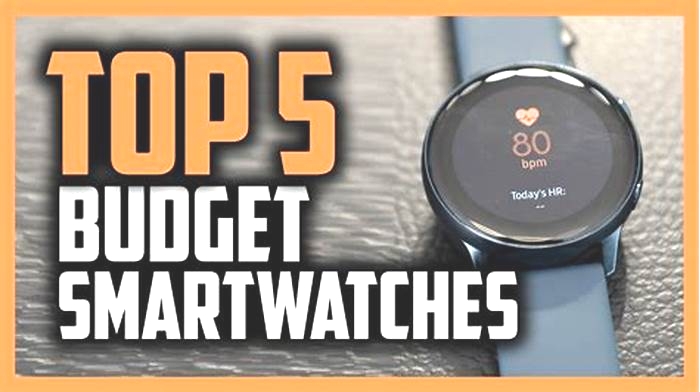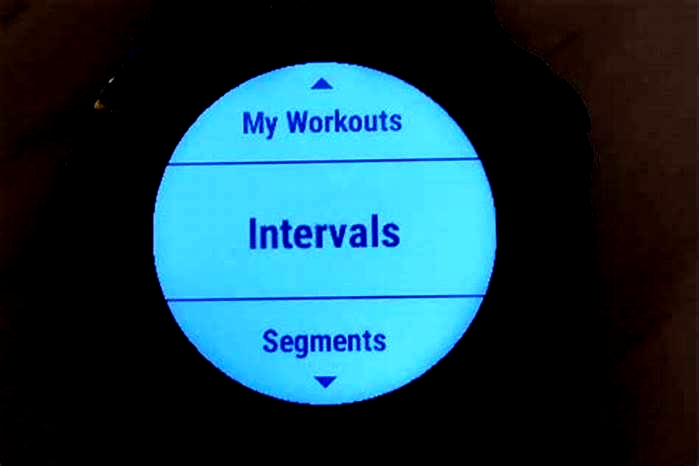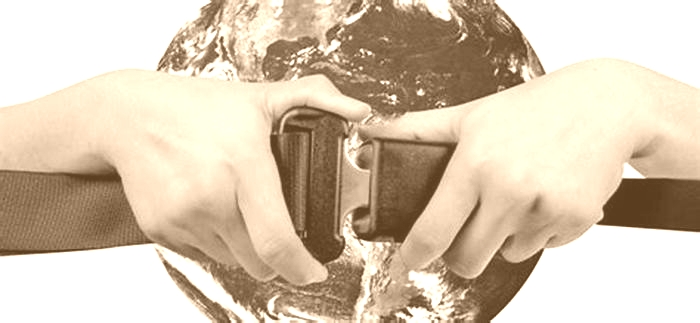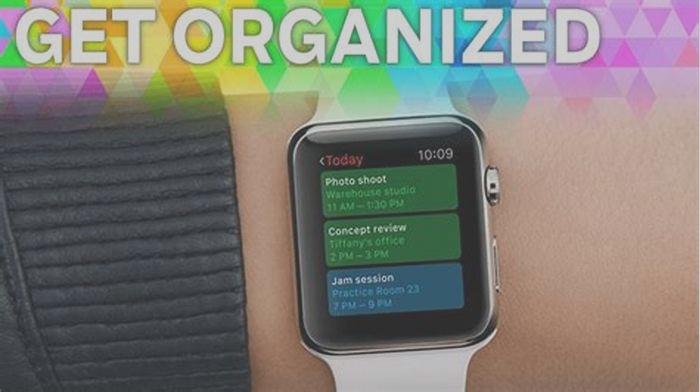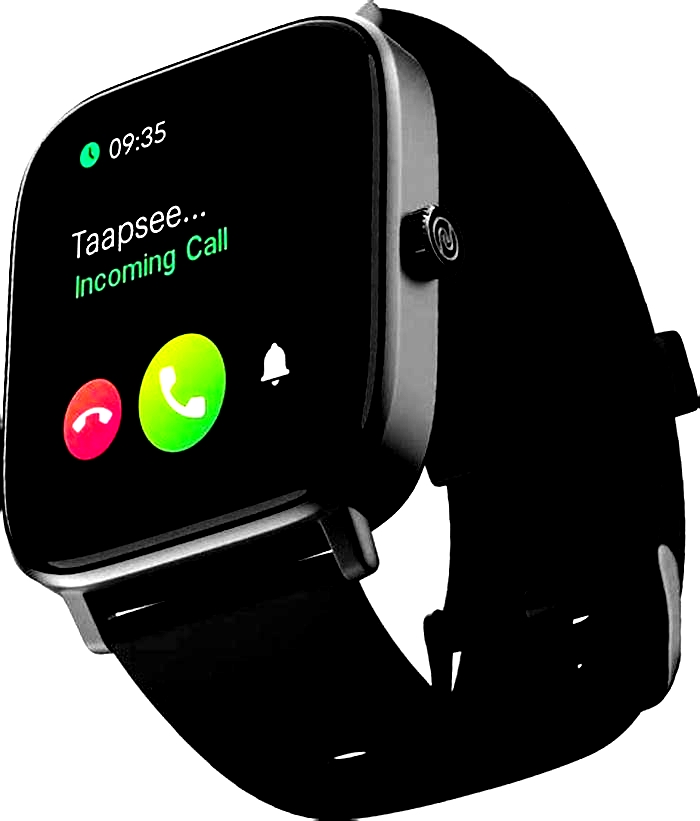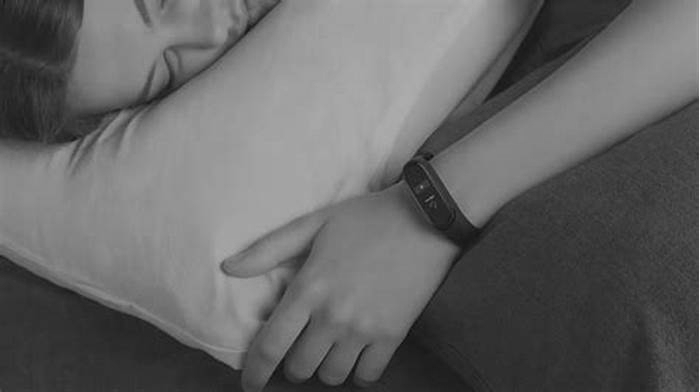Budgeting Like a Pro Utilizing Your Smartwatch to Track Expenses Set Saving Goals and Stay on Top of Finances
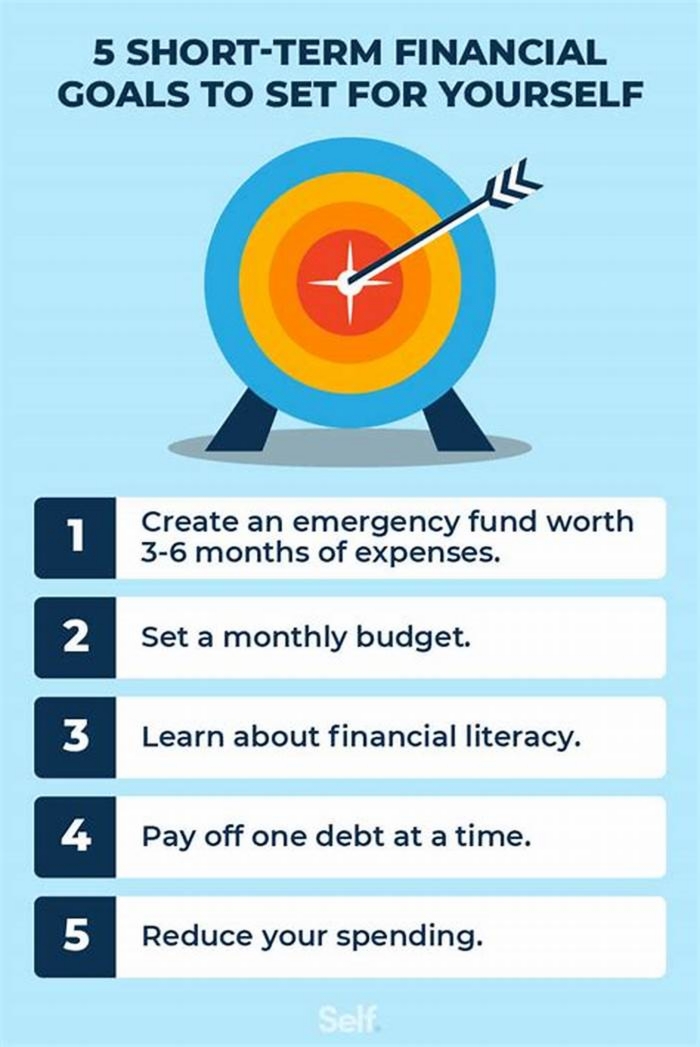
8 Best Personal Expense Tracker Apps of 2024
The first step to getting a handle on your cash flow is knowing how you're spending your money.
Expense tracker apps help you collect and classify your purchases so that you can spot where to trim your costs. Or, in the case of building net worth, places where you can allocate more money, such as savings. You might track expenses for a while just to check where your moneys going, or it might be a stepping stone toward making and following a budget.
Here are top apps based on user ratings in the Apple App Store and on Google Play. Those platforms vary widely on search volume for expense trackers. Because of that, an iOS app needed 35,000 or more reviews and a rating of 4 or better to make our list. On Google Play, an Android app needed 100,000 or more reviews with a rating of 4.5 or greater.
How do expense trackers work?
The goal here is to move from a spreadsheet at best or, at worst, no tracking at all to some form of collection and categorization of money spent. Apps can do that. However, the experience varies widely.
These are the most popular apps on the iOS and Android platforms, but you'll likely need to test-drive a few before you find one you're comfortable with. While our list focuses on free apps, for the most part, you'll probably have to upgrade at a small cost to get all the features you want.
The list of features you may want might include:
Easy transaction download.
Automatic logging of recurring transactions.
A forecast of your ending balances at some point in time (cash flow).
Auto-categorization of transactions, especially taxable items.
And one real luxury on the wish list: the ability to scan receipts.
It's likely you won't find every feature you want or need in one of these apps, especially if it's free. But starting the process of tracking your expenses is more than half the battle. When you've been at it a while, you'll know more about what you want in a financial app.
Best iOS personal expense tracker apps
EveryDollar
This app helps you deploy a zero-based budget plan by "giving every dollar a job." Users are enthusiastic about the spending and saving approach of EveryDollar, but some recent and older reviews express complaints about the apps user interface and expense-tracking capability.
Cost: The basic version of the app is free. The premium version is $17.99 a month, or $79.99 a year. New users are offered a 14-day free trial.
YNAB
You Need a Budget touts no in-app ads or product pitches. Thing is, that's because it's only free for a 34-day trial. The app is pricey, but reviews gush that YNAB is "life-changing," "exactly what I needed" and "excellent."
You can share one subscription with your partner, family or friends. And you can use the app to set and track your goals, and calculate some of your debt with the loan planner tool.
Cost: You can purchase the annual plan for $99 a year or pay $14.99 a month.
LendingTree Spring
The website best known for being a loan referrer has expense-tracking functionality integrated into its app, allowing you to aggregate account balances, track spending and monitor your net worth.
Expensify
Combining personal and business expense tracking capabilities lures many users to this app as does the convenience of scanning receipts. But categories are limited in the free version, and some reviewers are turned off by the email marketing. There are two paid versions of the app, aimed at businesses with 1-10 employees or up to 1,000.
Cost: Free to $36 per month, depending on the plan.
Rocket Money
This app has an interesting wrinkle: It not only helps you track your expenses, but promises to find and cancel unused subscriptions that are tied to your financial accounts. Rocket Money also says it can lower some charges on recurring bills. There is a free version of the app and a paid premium version. Some features, including bill negotiation services, require an additional fee.
Cost: Free. The premium version has a sliding scale from $4 to $12 a month; if you choose the $4 to $5 level it is billed annually in a lump sum.
Best Android personal expense tracker apps
Money Manager
Money Manager tops our list of Android expense tracker apps for its high rating, clean display and personalization options. App developers seem quick to respond to user questions and suggestions. Many reviews are very favorable, and note that the number of ads shown (the tradeoff for a free app) is not overly irritating.
Cost: Free, or pay a one-time fee to skip ads forever (a steep $58).
AndroMoney
AndroMoney has been described as a versatile app that can be "as complicated or simple as you want." Yet, another reviewer wishes it had more cash flow projection capabilities to see estimated future account balances. Still, AndroMoney earns a high user rating, though developer responses to suggestions and complaints seem lacking. There is also an ad-free version of the app.
Cost: Free. The premium version costs $3.99.
1Money
1Money touts the ability to "add a new transaction with a single tap." All you'll need to do is enter the amount of the item. Most users are enthusiastic, praising its easy navigation and simplicity. Support responds quickly to inquiries. One feature that seems missing: the ability to snap receipts from a smartphone. There is a premium version of the app thats ad-free and allows you to create multiple accounts, categories and sync between all of your devices.
Cost: Free for the basic version. The premium version is $1.99 for one month, $6.99 a month for a year or a one-time fee of $19.99 for lifetime access.
Track your spending with the NerdWallet app
Track your budget and see all of your finances together in a single place. Get timely insights to make smart financial decisions all for free.
If you're ready to start a budget
Once you get a handle on where your money is going, you may want to take even more control of your efforts to build your net worth. That is likely to lead to exploring the budgeting process. NerdWallet has compiled the best budget apps for your consideration.
We also provide non-app options:
7 Practical Budgeting Tips to Help Manage Your Money
A budget can be crucial to understanding and directing where your money goes. Whether youre new to planning your finances or have struggled to do so in the past, these budgeting tips can help you stick to the plan.
7 budgeting tips for everyone
1. Decide why youre budgeting
Start by articulating whats inspiring you to create a budget. Are you in debt, looking for expenses to trim or simply trying to stop spending so much money? Maybe youre saving up for something, like a wedding or new baby.
Knowing why you are doing something can make it easier to follow through, says DeDe Jones, a certified financial planner and managing director of Innovative Financial, LLC in Lakewood, Colorado.
When budgeting with a partner, discuss the details together to ensure youre on the same page.
2. Use empowering language
The term budget can be off-putting.
People resist it because it comes from a place of scarcity, Jones says. She recommends switching to language youre more comfortable with, such as spending plan, to help keep you motivated.
A budget or whatever you choose to call it shouldnt intimidate or restrict you. It should be an opportunity to take control of your money.
Before you build a budget
NerdWallet breaks down your spending and shows you ways to save.
3. Test out different budgeting methods
Just as there are many reasons to budget, there are many ways to budget. Some people check in and track expenses by hand daily. Others want to do as little work as possible and opt for an app. Read up on different budgeting methods like the 50/30/20 budget or the cash-based envelope system and try one that fits your lifestyle.
The key to the game is just sticking with it and recognizing those first months are really tough, says Liz Gillette, a certified financial planner with Mainstreet Financial Planning Inc. in Odenton, Maryland.
If you give it a fair shot and cant find a way to make it work, explore other options. Be realistic and jump ship to something else that you feel is going to make an impact, Gillette says.
4. Prioritize expenses and goals
Understand the difference between needs and wants, then focus on the essentials first those include groceries, housing and transportation costs. That doesnt mean other expenses arent important, though. Your financial goals, such as paying off debt or saving for retirement, should still receive attention.
The purpose of a budget, Gillette says, is to understand whether or not your money is going toward things that youre happy with, youre proud of and align with your values.
The 50/30/20 budget is a good guideline for covering the major spending categories. It suggests using 50% of your income toward needs, 30% toward wants and 20% toward savings and debt.
5. Leave room for surprises
Dont expect your budget to be perfect. Surprises will happen, and some expenses may slip through the cracks like the occasional impulse buy. But you can take precautions to soften the blow.
Set aside a little bit of cash to cover miscellaneous expenses each month and make regular contributions to an emergency fund. That way you can handle an unexpected car repair or other emergencies without taking on credit card or loan debt.
6. Automate responsibly
Technology can help alleviate the tedious aspects of budgeting and prevent setbacks. So why not let it do some of the work for you? Try setting up automatic transfers so you can regularly pay bills or sock money away without thinking about it, and lean on budget apps to conveniently track your spending.
Keep an eye on everything you automate. You may discover monthly subscriptions that youre paying for that are no longer valuable to you, Jones says. If youve got three streaming music subscriptions, maybe one would be plenty.
Track your spending with the NerdWallet app
Track your budget and see all of your finances together in a single place. Get timely insights to make smart financial decisions all for free.
7. Revisit your budget monthly
Some expenses vary from month to month or pop up infrequently, like holiday gifts or vehicle registration fees. Income can change, too. Perhaps you earned a little more from your dog-walking gig this month than you did last month.
Checking in on your budget at least once a month gives you the chance to deal with fluctuations in a timely manner. A check-in also gives you an opportunity to talk about money with your partner, if you're working from a family budget.
Depending on your style and the method you choose, you may decide to check in more frequently thats OK, too.
9 Tracking Expenses Tricks That Will Help You With Budgeting
If youre trying to stick to a budget, but struggling, tracking expenses can help you stay on top of how much youre spending and what youre spending it on. When you know how to effectively track your expenses, youre essentially putting your budget into motion.
From setting up a thought-out budget to partnering with a friend, here are 9 tips and tricks to help you start tracking your expenses.
1. Make a Detailed and Realistic Budget
Before you start tracking expenses, you will want to make a thorough budget that will fit into your life. This means your budget shouldnt be unrealistically strict, but it should give you room to cut back on spending so you can bulk up your savings.
Good to Know: A budget is a useful tool that will help guide you so you can have a stable financial future.
Pro Tip: You should approach building a budget with a positive attitude. A negative mindset will act as a roadblock to success because a few weeks or months in, you wont want to stick with it.
When you first make your budget, take the opportunity to identify areas in your finances where there is room for improvement. This will help you make goals so you know how you want your finances to grow year to year.
Where Do You Start? Not sure where to start with your budget? Consider doing these three things:
- Choose a proven strategy. From the envelop system to the classic 50/30/20 plan, do your research about the simplest and most popular budgeting plans and choose which one is best for you.
- Know your income. This might seem obvious, but its important to know how much youre making after taxes so you can plan accordingly.
- Automated banking. This is especially helpful when it comes to savings. Having direct deposit for your paycheck and then having a portion of that automatically moved into a savings account will remove some of the temptation to shop.
Just remember that theres no harm in reevaluating your budget every few months if something isnt working. That way you can remain flexible and maintain a financial plan that works for your lifestyle.
2. Use an Expense Tracking App
With online shopping quickly taking over the retail sector, you might see technology as the start of all your financial woes. But with an expense tracking app you can use technology to your advantage.
Good to Know: Most budgeting apps seamlessly integrate into your life by working with your budget to separate your money into savings and spendable income. These figures are based off your current income and typical monthly payments. However, the app cant do all of the work for you. You will have to put in some leg work yourself. That means logging your monthly income, every purchase you make, and putting the apps suggestions into action.
What Apps Should You Use?
Apps can be especially useful if you do not have a consistent salary month to month.
- WithMetromile, you can easily check mileage on your car drives every week. You will feed your data to the Metromile app, so you can get quick information on various check engine codes, and how to reduce your mileage. If you dont drive at all in a given month, youll only pay the monthly fee.
- For entrepreneurs and freelancers, try downloading Hurdlr. By tracking all of your income streams as well as your mileage, expenses, and tax deductions, Hurdlr lets you know how much money youre making before and after tax. This makes it easy to budget your real income and you can tailor your spending to match.Hurdlr has partnered with Uber and Upwork so that thousands of freelancers can have their income automatically tracked and put into their budget.The app will also allow you to connect your external investment accounts to Hurdlrs API, offering you a more transparent breakdown of your revenue and tax obligations.
- Another great option for millennials is Wally. This app focuses especially on outgoing expenses and uses artificial intelligence to provide you feedback and advice for how to change your spending habits.
3. Track Every Expense for at Least a Week
This is a good exercise to try before you even organize your budget. By tracking expenses for a week you get an accurate outline of where your money goes each month. Budget plans rarely require you to write down every single penny spent. However, challenge yourself to keep a detailed ledger for a week or twoyou might be surprised by what you discover.
Good to Know: It can be illuminating to learn how often you spend money and where it all goes. Those morning coffees will seem less like a harmless treat and more like a drain on your wallet. Once you have this information, you will likely have a new awareness of what spending you can cut back on and how little luxuries can fit into your budget.
Pro Tip: To do this effectively, you will want to carry a small notebook around everywhere with you. Ledgers are particularly useful when you divide them into several categories, such as food, utilities, rent, restaurants, and extra expenses (like clothes shopping or activities). If you continue using a ledger after you have organized your budget, these categories can be assigned a spending limit. Ledgers are a great way to consistently remind yourself throughout the day how much youre spending, and how much is left in the budget. A visual and physical reminder will help you stick to your financial goals.
4. Set a Monthly (or Daily) Spending Limit
While you are tracking expenses, youll want to set spending limits for each budget category. Certain categories, like rent and utilities, will be easy because you wont have a choice in the matter. Because these categories are already set, you will build your spending limits around these expenses.
Good to Know: When just beginning to use a budget, some people find it easiest to stick to only using cash. Ditching your debit card and only withdrawing a certain amount of cash at the beginning of each month or week can be an excellent strategy.
- By separating your cash into each category, you give yourself a visual indication of how much money you have left so that you know when you cant afford to go out for lunch with friends or buy that new pair of jeans.
- Over time, if you find that you are consistently struggling to stick to a spending limit, ask your bank or credit card issuer to lower your spending limit. However, this can negatively impact your credit score so weigh the pros and cons before changing your credit limit.
- Keep in mind that these spending limits need to be realistic. If before you were buying coffee every morning and lunch break, it probably isnt realistic to say you will never buy another latte. Instead, cut back to just one a day or a few a week.
If your limits are too strict, you could quickly get discouraged and give up on your budget altogether.
5. Check Your Credit and Debit Card Use
You should aim to check both your credit card and checking accounts at least once a week, if not more often. Getting into the habit of checking your accounts will help you stick to your budget since you will be reminded of how much youve spent that week.
Pro: Not only will you stay on top of your finances, but you will also catch any fraud or suspicious activity before it can progress further. This gives you a better chance of recovering lost funds and having the bank quickly remedy any errors.
- If you check your accounts daily it will actually become less of a chore because there will be fewer transactions to look over.
- You will also be able to stay away from the dreaded overdraft and the fees that come with it. Overdraft fees are unexpected and costly, so theres no room for them in your budget.
- This practice could have the added benefit of keeping you motivated.
Seeing where youve messed up in the past can motivate you to do better in the future. Or seeing your savings take off can show you that your budget is actually working and that your sacrifices havent been in vain. It can be hugely supportive to know that youre on the right track and can lead to you save more in the coming months.
6. Organize Based on Needs vs. Wants
This seems simple enough, but separating all your expenses into these two categories before you start tracking expenses can help keep you saving money. If you are somebody who struggles with putting things into budgeting categories and sticking to them, you should consider following the 50/30/20 plan.
How Do You Do This?
First, you will need to list everything you typically buy in a monthor in a year, if you are feeling ambitious. This includes everything from toiletries like shampoo and toothpaste to filling up your car with fuel.
- From this list, you can start organizing the items into the two categories: wants and needs. This should be fairly straightforward and just requires a bit of time and common sense.
- From this list, you can begin organizing your 50/30/20 budget.
- The numbers represent percentages. So 50% of your income is allocated to needs, 30% to wants, and 20% to savings or paying off loans.
- After calculating your after-tax income, you can easily determine how much money will go into each category.
However, you shouldnt assume that your costs are set in stone. Its easy to cut back spending on wants by shopping less often or scouting for sales. But its equally important to try to minimize how much youre spending on needs. Just because you have to spend money on these things doesnt mean you have to spend as much as you are.
Pro Tip: If you have been with the same broadband or car insurance provider, chances are your loyalty is being penalized with higher rates. See if switching providers will earn you a discount. Just threatening to leave your current provider could prompt them to lower your monthly payments.
7. Always Ask for a Receipt
This is a great strategy for tracking expenses. Its easy to say yes when a clerk asks if you want your receipt and theyre the only way to know exactly what youve spent if you predominantly use cash. Collect your receipts and write down every purchase in a ledger at the end of each day or week.
Pro Tip: When you go through your receipts, you can make a note of how each fits into your budget, or what spending needs to be trimmed in the next week. If you were able to put $200 in your savings account every month when you first started budgeting, but that amount has decreased to $150, it can be confusing.
Thats why keeping receipts is very useful for those who have been budgeting for a while and have slowly grown more laid back with their spending over time. Ultimately, it gives you an increased understanding of your spending habits.
Good to Know: Organizing and processing your receipts is a surprisingly quick task and can end up saving you lots of money.
If you have any purchases that you think may be tax deductible, keep hold of it long term. These should be bundled together and labelled so that you can take advantage of them when tax season rolls around.
8. Set Spending or Saving Goals
Setting yourself goals is an excellent way to stay motivated because you will be closely monitoring your progress until you reach those milestones.
Good to Know: Whether you want to put $2000 in your savings account by the end of the year or save up enough cash to remodel your bathroom, having a budgeting goal is a powerful tool to help you save and track expenses. However, goals should always be realistic. Otherwise, you might end up getting discouraged because youve removed all the little luxuries from your life, but your goal still seems impossibly far from being achieved.
You also shouldnt set more than one saving and one spending goal at a time. That means you might want to decide to stop spending money on takeaway coffees and to save enough money each month to pay off your debts. But dont add to these by saying youll stop eating out altogether and will save up enough for a deposit on a home.
Pro Tip: Having too many goals will get overwhelming and confusing. You want to make things as simple as possible for yourself. After you reach your goal, you might not want to set another one immediately. Instead, if you are setting large milestones, take a year or two off in between to relax and plan carefully for the future.
9. Use the Buddy System
Still finding tracking expenses tricky? Try the buddy system. Find a friend or two who is also trying to stick to a budget, and wants the moral support that comes with a group mentality. By reporting your spending to a friend, youll be held accountable for deviating from your budget.
Even better, if you share a similar lifestyle with your friends, you can swap money saving tips or promotion codes and sales at local shops or for online purchases. Using this information wisely can help you save money on both your needs and wants.
If your budgeting group starts to grow, try to keep it to close friends. While you want to be held accountable, you shouldnt invite harsh or judgmental opinions, especially where your finances are concerned.
The best type of budgeting buddy is one who offers friendly support and solid money advice.

